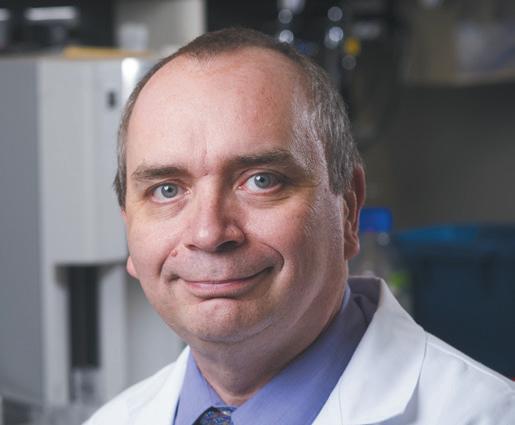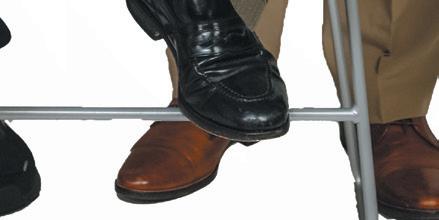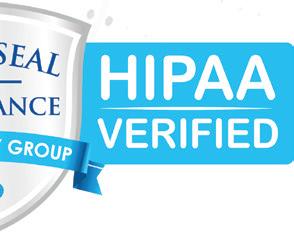
5 minute read
FDA Approves Groundbreaking Alzheimer’s Drug,
nol or Benedryl if they experience a typical mild infusion reaction. After 18 months of treatment, PET scans show that most of the amyloid protein has been removed.
“We aren’t yet sure where or when the drug antibodies bind to the amyloid proteins, but it may be in the bloodstream. We hope the amyloid protein won’t return and that the time gained while using the drug will continue to push forward the progression of worsening symptoms to a time later than they would have appeared.
“This medication is a treatment, but not a cure. It doesn’t reverse damage to neurons that have already been compromised, so unfortunately it isn’t for patients whose symptoms have progressed to the point they are no longer independent. The drug is aimed at plaques, but it doesn’t address the tangles that are already there. We don’t know yet how reducing amyloid plaques will affect the formation of tangles, which are the other half of the equa- tion in progression of the disease.
“Our goal with this medication is to give patients more time to live independently and enjoy being with their family and friends. We want to delay the need for a caregiver, and give families more time to live without the burden and expense of caregiving. ”
The drug is continuing to be studied in hopes of improving it. Researchers are working on a form that could be selfinjected much the same as insulin. Other continued from page 1 drug companies are working on medications with a similar mode of action. Eli Lily is developing a medication that we think is likely to be approved this year.
It’s always good to have multiple options, since a patient who may not be a candidate for one drug could possibly benefit from another,” Gelmacher said. “I should add that Leqembi shouldn’t be given with a blood thinner, since a small percentage of patients have experienced side effects of small brain bleeds or swelling. The swelling usually resolves and the bleeds are sometimes so slight they only show up on imaging, but it is enough of a concern to make blood thinners a contraindication. These rare side effects seem to be more likely to occur in patients with an APOE-4 variant, so those with that genetic profile should be closely monitored.”
Additional research is underway to develop drugs that target the formation of tangles. New uses of drugs already approved for other applications are also
Mental Health Resource Shortage, continued from
tion hospitals find themselves in.
“Studies show that psychiatric patients are generally two times as likely to be admitted to the hospital as medical patients. And the need for access to mental health resources has significantly increased. A recent study showed that emergency department encounters with mental health patients have increased by 44 percent. From 2010 to 2016, there was a 13 percent decrease nationwide in inpatient psychiatric beds. So more patients are attempting to access mental health resources while there has been a contraction of resources. This nationwide trend is also taking place in Alabama and certainly in Birmingham.”
Caine agreed. “It’s really a nationwide problem, specifically in urban areas, but also in rural areas where there is often not access to psychiatrists or outpatient psychiatry programs.”
“With beds closing and the lack of inpatient treatment options, we are see- ing more return visits to the emergency department,” said Carrie Wynn, BSN, RN, service line director of emergency services at Decatur Morgan Hospital.
“Some of the mental health patients stay in the ER for days. We had one patient for 20 days. So you have a treatment bed in your ER tied up for nearly a month, waiting for us to find them a bed to transfer to.
“In addition, if patients are at risk for suicide or a threat to others, regulations now require a one-to-one sitter while they are in the ED. You can imagine the impact that’s having on our healthcare staffing, especially with some of the long stays. And the ED is not a therapeutic environment for these patients. When you have a paranoid schizophrenic who is having auditory hallucinations in a noisy ED, that’s not beneficial for them. We offer care, but there’s a line between what an ER physician can do for them versus what a psychiatrist would do.
“This crisis is also causing problems page 1 with allocation of EMT resources. Because there are so few available beds in the state, we find one across the state, so we’re frequently sending our ambulance crews six hours away. If it’s a six-hour trip, that’s 12 hours the ambulance is out of service. It keeps a crew from answering 911 calls locally.”
All the providers say there are no simple solutions here. More beds are needed, as well as more caregivers. A better system for care before patients become emergent would result in less traffic in EDs. Better follow-up care would cut down on repeat visits. An automated system for tracking available beds would free up personnel who are currently searching for availability institution by institution. But these are all long-term answers that will require funding and a concerted effort by state leaders.
In the meantime, Rogers offers some suggestions for steps EDs can take to help manage the situation: Since routine is important for psychiatric patients, regular meals are important, and many need nicotine supplements. If restraints are needed, they should be discontinued as soon as possible. Hospitals should provide a dedicated space in order to consolidate resources and board psychiatric patients further away from the activity of the emergency department. Telehealth access to psychiatrists can help provide better care for hospitals that don’t have an inpatient psychiatric facility.
Rogers acknowledged the frustration of providing quality care to all patients in the ED under difficult conditions.
“We want to take good care of our patients,” he said. “It’s frustrating when we are overburdened. This is a difficult and complicated issue.” being studied to see if they might benefit Alzheimer’s patients.
“One area with a great deal of potential is drugs for diabetes, including those that are now being used to help with obesity,” Gelmacher said. “There is something about insulin resistance that seems to be involved in the development of AD.
“Since Alabama has the third highest death rate from Alzheimer’s Disease in the nation, every step forward really matters to the people all around us.
“The takeaway for physicians and other health professionals is that we need to watch for indications of possible Alzheimer’s Disease every time we encounter patients who may be at risk. In the past, there was a social tendency to avoid bringing up the possibility of a memory disorder until it became obvious. Now we can make a real difference in the course of the disease and the quality of patients’ lives, but to get the full benefit, we have to start early.”
Succession Planning Starts
Early, continued from page 3 and using systems and equipment. You’ll introduce them to other physicians and the staff, and to providers who refer patients to you, along with physicians you refer your patients to.” Perry said.
On the personal side of succession planning, there’s more to consider about retirement than finances. The people who do best in retirement tend to think of it as retiring to something rather than retiring from. There are only so many hours a day to golf or fish before it becomes boring.
Will you travel? Make sure your passport is up to date and start looking at brochures. Some of the best trips are booked up to a year in advance.
“If you would like to continue using your skills and the wisdom you’ve learned as a physician, there are many ways to do it,” Perry said. “You can earn extra money for travel and other activities by reviewing files for insurance companies and attorneys. Volunteer at clinics or outreach programs. Mentor, teach or write a book or article on a topic that interests you. Work with local medical organizations or speak to community groups.”
If a local medical organization is putting together a mission trip to help needy people in Central America, go with them as a physician. Make a difference. See the world.
Whatever you choose to do in retirement, enjoy it. You’ve earned it.









































